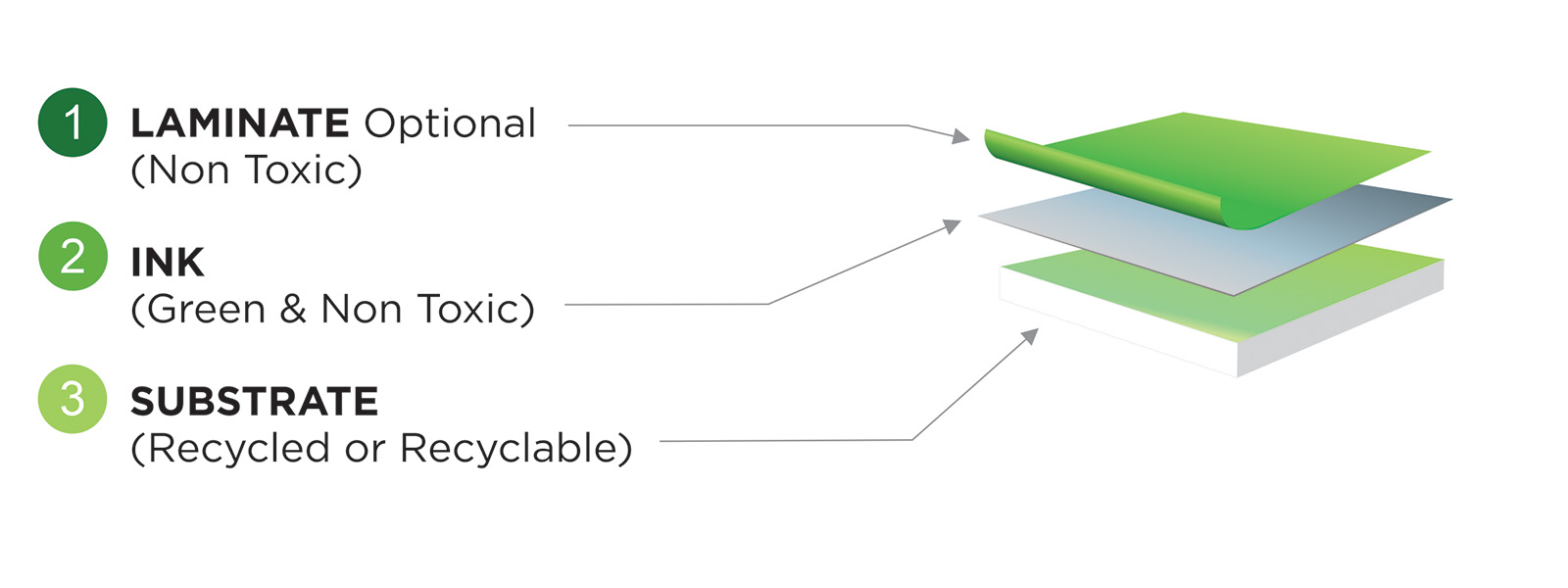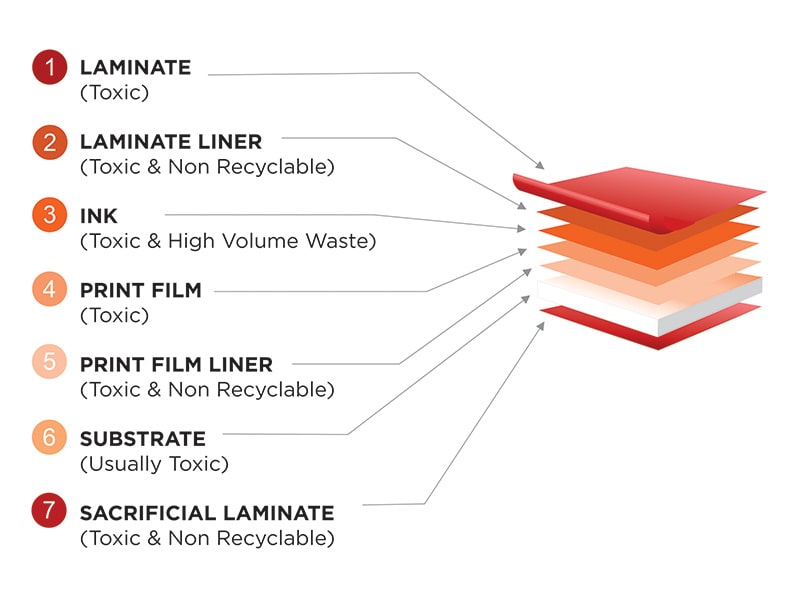Eco Friendly (Green) Signage
As a business, LJ Signs is constantly looking at new ways to reduce our carbon footprint and make signage more environmentally friendly. Traditionally almost all signage has been printed with Solvent (toxic) inks onto non recycled or non-recyclable materials (toxic) with exceptional amounts of waste in the manufacturing process that goes into landfill and continues to poison the soil for years to come. Not only is this dangerous for the environment it is dangerous for us, humans.
LJ Signs strives to increasingly work with suppliers who are adhere to waste management and recycling standards, which includes suppliers who make an extensive commitment to ecologically sustainable work practices.
We have sourced products and have printing capability that is environmentally friendly and safe for humans and the environment. This can be used for marketing material, signage, displays, vehicles and many more.
Many of the sustainable products we offer are either Recycled, Recyclable or PVC Free. Here are some of the new products available:
Smart X. Unique lightweight plastic board which is 100% recyclable. External applications up to 2 years.
Re Board Paper Based board with unique engineered fluted core. Ideal for display signage and manufacture of free-standing displays.
DISPA Offers outstanding properties and as a paper product, it is 100% recyclable.
DISPA OUTDOOR Offers outstanding properties and as a paper product, it is 100% recyclable for short term outdoor applications.
3M Envision print films Offers outstanding properties and as a paper product, it is 100% recyclable for short term outdoor applications.
Important to highlight these products, print vinyl and laminates do not contain any harmful PVC (poly vinyl chloride).
LJ Signs support suppliers who adhere to:
The reduction of discharges of certain toxic or otherwise polluting substances into water, the reduction of environmental damage or risks related to the use of energy by reducing energy consumption and related emissions to air
The reduction of environmental damage or risks related to the use of hazardous chemicals The application of sustainable management principles to safeguard forests
Meeting current regulations for REACH, RoHS and other regulations as well as specific substances of concern.

Our Sustainable Print Process
1
LAMINATE Optional (Non Toxic)
2
INK (Green & Non Toxic)
3
SUBSTRATE (Recycled or Recyclable)

Our Print Process

Standard Print Process
1
LAMINATE (Toxic)
2
LAMINATE LINER (Toxic & Non Recyclable)
3
INK (Toxic & High Volume Waste
4
PRINT FILM (Toxic)
5
PRINT FILM LINER (Toxic & Non Recyclable
6
SUBSTRATE (Usually Toxic)
7
SACRIFICIAL LAMINATE (Toxic & Non Recyclable)

Traditional Printed Signage Process

